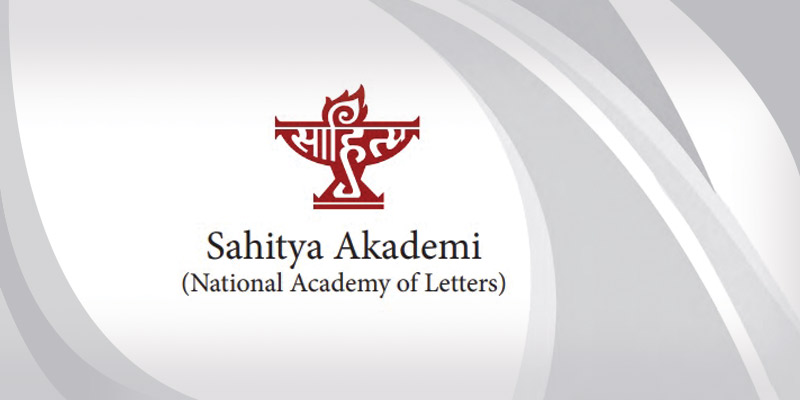- India
- Dec 21
24 writers chosen for Sahitya Akademi Award 2024
• Hindi poet Gagan Gill and English writer Easterine Kire are among the 21 recipients of the annual Sahitya Akademi Awards.
• Recommended by jury members in 21 languages, the awards recognise works in different categories including novels, short stories, poetry, essays and plays.
• Bengali, Dogri and Urdu language awards will be declared later.
• The winning list includes eight poetry books, three novels, two short stories, three essays, three works of literary criticism, one play and one research.
• The awards were approved by the Executive Board of the Sahitya Akademi which met under the chairmanship of its president Madhav Kaushik.
• The awards relate to books first published during the five years immediately preceding the year of the award, between January 1, 2018 and December 31, 2022.
• The authors and poets will receive a plaque, a shawl and an amount of Rs 1 lakh in an award ceremony on March 8, 2025.
Winners and titles:
• Assamese: Sameer Tanti - Pharingbore Bator Katha Jane (Poetry)
• Bodo: Aron Raja - Swrni Thakhai (Novel)
• English: Easterine Kire - Spirit Nights (Novel)
• Gujarati: Dileep Jhaveri - Bhagwan-ni Vato (Poetry)
• Hindi: Gagan Gill - Main Jab Tak Aai Bahar (Poetry)
• Kannada: K.V.Narayana - Nudigala Alivu (Literary Criticism)
• Kashmiri: Sohan Koul - Psychiatric Ward (Novel)
• Konkani: Mukesh Thali - Rangtarang (Essays)
• Maithili: Mahendra Malangia - Prabandh Sangrah (Essays)
• Malayalam: K.Jayakumar - Pingalakeshini (Poetry)
• Manipuri: Haobam Satyabati Devi - Mainu Bora Nungshi Sheiroi (Poetry)
• Marathi: Sudhir Rasal - Vindanche Gadyaroop (Criticism)
• Nepali: Yuva Barai - Chhichimira ( Short Stories)
• Odia: Baishnab Charan Samai - Bhuti Bhakti Bibhuti (Essays)
• Punjabi: Paul Kaur - Sun Gunvanta Sun Budhivanta: Itihaasnama Punjab (Poetry)
• Rajasthani: Mukut Maniraj - Gaon Ar Amma (Poetry)
• Sanskrit: Dipak Kumar Sharma - Bhaskaracaritam (Poetry)
• Santali: Maheswar Soren - Seched Sawnta Ren Andha Manmi (Play)
• Sindhi: Hundraj Balwani - Purzo (Short Stories)
• Tamil: A.R.Venkatachalapathy - Tirunelveeli Ezucciyum Vaa.Vuu.ci.Yum 1908 (Research)
• Telugu: Penugonda Lakshminarayana - Deepika (Criticism)
Sahitya Akademi
• Sahitya Akademi was established in March 1954 by the government of India.
• It is an autonomous body under the ministry of culture with the objectives to work for the development of Indian letters and to set high literary standards, foster and co-ordinate literary activities in all the Indian languages and promote through them the cultural unity of the country.
It aims to:
i) Promote good taste and healthy reading habits.
ii) Keep alive the intimate dialogue among the various linguistic and literary zones and groups through seminars, symposia, lectures, discussions and readings.
iii) Increase the pace of mutual translations through workshops and individual assignments.
iv) Develop a serious literary culture through publication of translations, journals, monographs, individual creative works of every genre, anthologies, encyclopedia, bibliographies, histories of literatures, dictionaries, etc.
• The Akademi has a special programme called Gramalok for the writers from remote village areas.
• The Akademi has recently introduced a new programme titled Dalit Chetna to give exposure especially to Dalit writers.
• Akademi gives 24 awards annually to literary works in the languages it has recognised and an equal number of awards to literary translations from and into the languages of India, both after a year-long process of scrutiny, discussion and selection.
• Sahitya Akademi bestows Bal Sahitya Puraskar on the best literary works in the field of children’s literature and Yuva Puraskar for young writers who have achieved excellence in creative writing and Bhasha Samman for significant contribution to classical and medieval literature and unrecognised languages.
• It also awards fellowships and honorary fellowships to eminent writers, Indian and non-Indian, and Dr. Ananda Coomaraswamy Fellowship and Premchand Fellowship to a person of eminence in the field of art, culture, literature and language studies, and to scholars doing research on Indian literature or to creative writers from the SAARC countries other than India.
Manorama Yearbook app is now available on Google Play Store and iOS App Store

